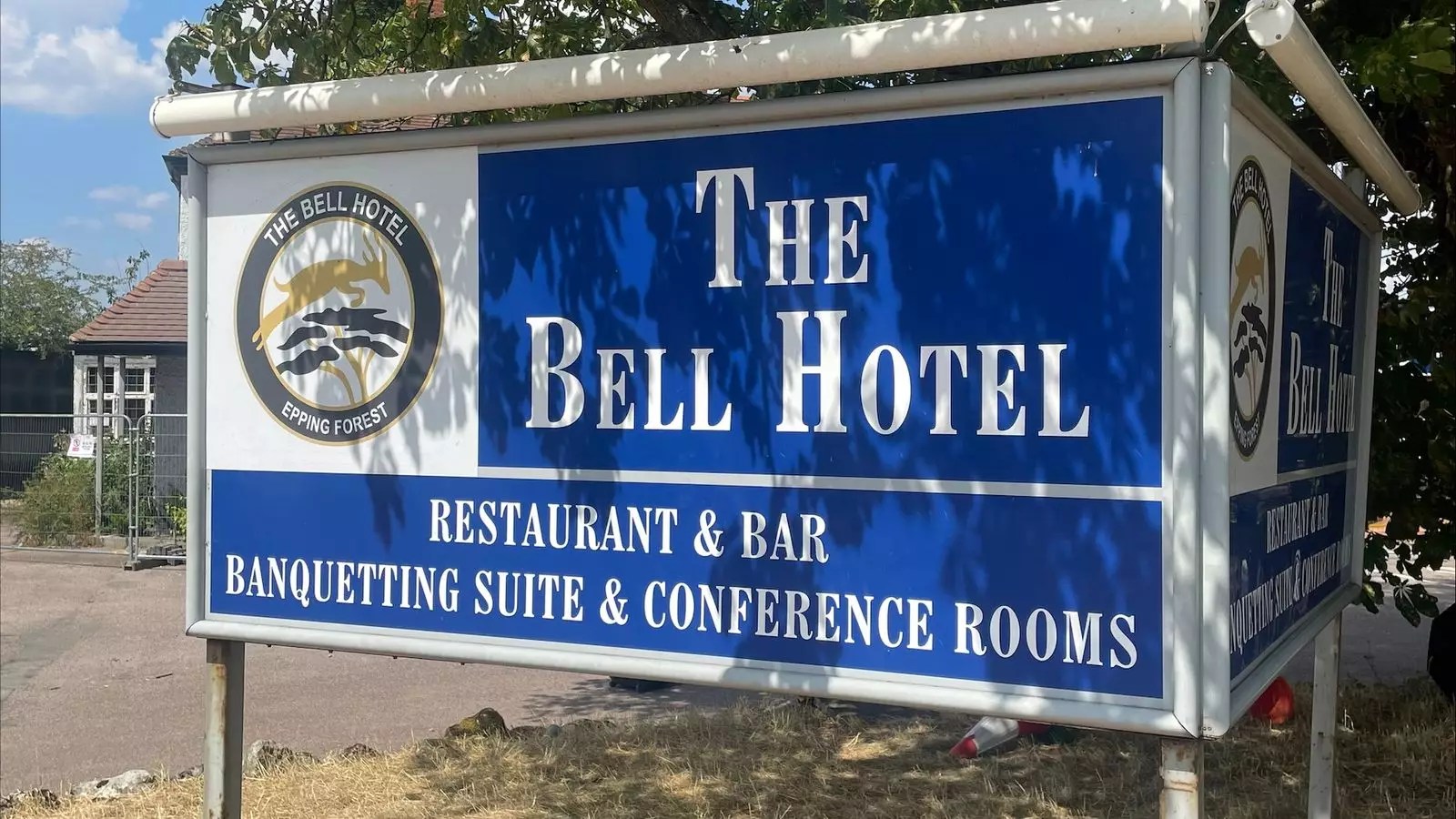The recent decision by the Essex council to temporarily halt the accommodation of asylum seekers at The Bell Hotel signals a troubling shift in local politics—one that exposes a fundamental tension between community welfare and humanitarian responsibility. While the council claims to act in the best interests of its residents, this move reveals a deeper unease rooted in fear, misinformation, and a resistance to change. The legal victory, while seemingly just another bureaucratic victory, actually underscores the fragility of our collective moral obligation to help vulnerable populations. It is easy to rally around short-term self-interest, but carves a dangerous path when compassion becomes subordinate to political expediency.
This scenario exemplifies how local authorities often navigate the delicate balance between upholding community standards and adhering to broader human rights commitments. The council’s aggressive pursuit of a court injunction to halt housing arrangements is not merely a legal action—it is a political statement that emphasizes sovereignty over social responsibility. Such measures tend to foster fear and division rather than fostering a sense of shared community. The clash here highlights a broader societal trend: a retreat into insularity fueled by misinformation and a reluctance to acknowledge the complex realities of migration.
Legal Actions as a Reflection of Deeper Societal Divides
The court’s decision to grant a temporary injunction against hosting asylum seekers is more than a legal victory for the council; it is indicative of the increasing marginalization of migrants in our society. The hotel, a space traditionally associated with hospitality and refuge, is now being cast as a symbol of disorder and threat. The legal arguments—centered on planning breaches and perceived safety risks—serve as rhetoric that inflames public suspicion. The hotel, which has previously accommodated migrants, is now being scrutinized through a lens of suspicion rather than empathy.
This legal tactic, while within the bounds of procedural justice, reflects a troubling tendency to criminalize or stigmatize the vulnerable. The protestors outside the hotel, fueled by accusations linked to the sexual assault case, important as that issue may be, are also symptomatic of a broader climate of fear and moral panic. Such reactions have the potential to overshadow the fact that asylum-seekers, like anyone else, deserve dignity and due process. Instead, they are being caught in a web of legal battles that leverage fear to justify exclusion—a dangerous precedence that undermines the core principles of human rights.
The Human Cost and Political Economy of Hostility
Behind these legal skirmishes lies a harsher reality: the lives of ordinary people affected by decisions often made in distant corridors of power or motivated by short-term political gains. For the hotel owners, the financial incentive to house migrants is described as a “lifeline,” yet when public opinion turns hostile, their business becomes a pawn in a political game. The narrative framing migrants as burdens or threats ignores the economic and cultural contributions they can provide when integrated thoughtfully.
The accusations that the hotel is operating outside its intended use do not exist in a vacuum—they are intertwined with broader debates around national identity, economic security, and social cohesion. Moreover, the assertion that the hotel’s use for housing is unwarranted or illegal seems to be a convenient justification rather than a genuine concern—what is more evident is the willingness of local actors to prioritize immediate community comfort over long-term social integration. The legal action is driven, in part, by a desire to draw a line in the sand, but at what moral expense? It is easy to dismiss asylum seekers as a political problem rather than recognizing their humanity—an approach that ultimately impoverishes society as a whole.
The Path Forward: Prioritizing Humanity in Policy Debates
The core question that remains unaddressed in this saga is whether our society is willing to uphold its moral duty to support those fleeing hardship. Temporarily blocking accommodation may appeal to fears and anxieties, but it fails to confront the root causes of migration and the need for comprehensive, humane policies. As we watch legal confrontations unfold, it becomes evident that the real challenge is fostering a political culture that balances community safety with compassion and justice.
Rather than retreating into legal battles and exclusive narratives, a more courageous path involves engaging with the community to dispel misconceptions and build mutual understanding. Investing in local integration programs, ensuring transparency, and emphasizing the shared benefits of diversity are all crucial steps. It is vital to remember that humane treatment of asylum seekers—including providing safe housing—strengthens the fabric of society rather than fraying it. It is through empathy, not exclusion, that we can forge a future where community interests and human dignity coexist peacefully.

